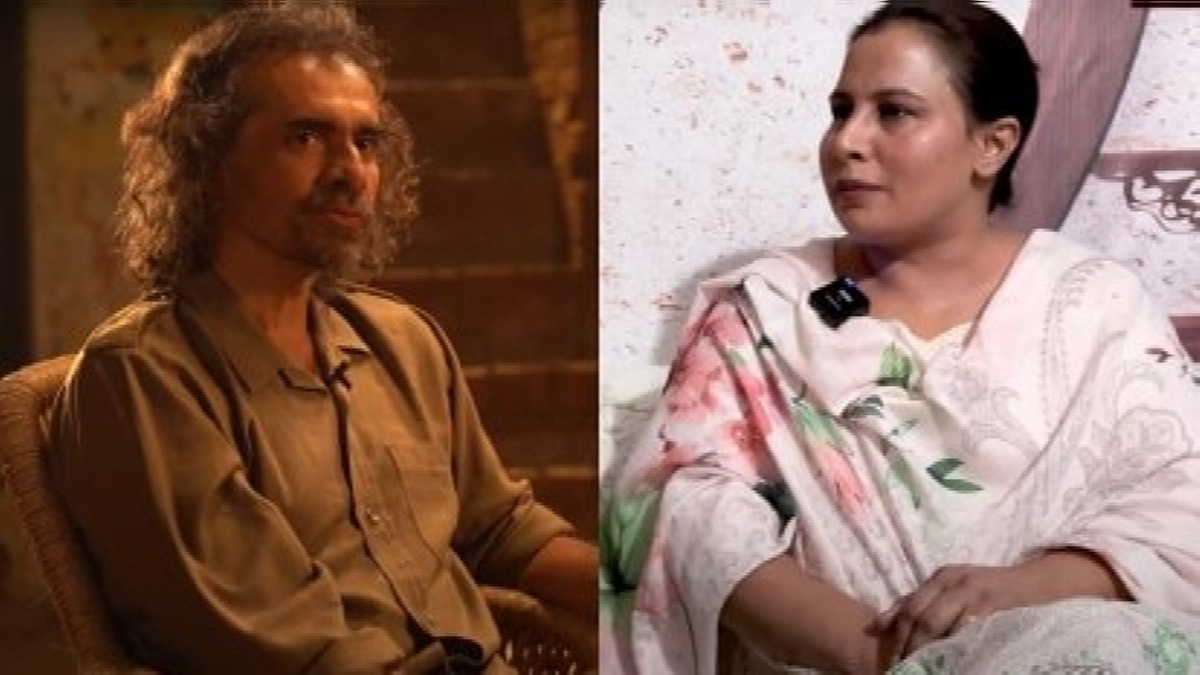Director Imtiaz Ali’s latest film, depicting the life of the late Punjabi singer Amar Singh Chamkila, stirred controversy post-release. Despite receiving acclaim, the film faced criticism from Amandeep Kaur, Chamkila’s eldest daughter from his first marriage.
Expressing her dismay in a candid interview with YouTube channel Switch, Amandeep revealed feeling let down by Imtiaz Ali’s portrayal. She lamented the lack of justice done to her mother, Gurmail Kaur, in the depiction of Chamkila’s life on screen.

Amandeep’s disappointment stemmed from the omission of crucial family details provided to the director. Despite the family’s efforts to share insights, Amandeep noted that significant aspects, including her mother’s pivotal role, were overlooked.
Gurmail Kaur’s integral part in performing Chamkila’s last rites, a poignant moment, was misrepresented in the film according to Amandeep. The absence of her family members’ portrayal and the lack of acknowledgement in the credits further fueled their sense of betrayal.
“They showed everyone from Amarjot’s family, but no one from our family. My bua, chacha, no one was shown,” shared Amandeep. She then added, “We are upset with him. How could he do this?
Unveiling Family Turmoil

Revealing deeper layers of familial strife, Amandeep and Gurmail shed light on the tumultuous aftermath of Chamkila’s demise.
They recounted years of legal battles against Amarjot’s family for Chamkila’s property, adding to their already fraught circumstances. Gurmail poignantly highlighted the financial struggles endured by the family post-Chamkila’s death, exacerbating their hardships. Their narrative painted a picture of resilience amidst adversity, showcasing the untold struggles faced by Chamkila’s first family.
The glaring absence of their narrative in the biopic underscored a broader issue of representation and recognition.
Amandeep and Gurmail’s voices echoed a sentiment of marginalization, pleading for acknowledgement and respect for their familial legacy. Their poignant testimonies shed light on the complexities and challenges intertwined with preserving the true essence of Chamkila’s legacy.
As the controversy unfolds, it prompts reflection on the responsibility of filmmakers in portraying historical narratives with integrity and sensitivity.

Amandeep Kaur’s candid revelations expose the underlying tensions and grievances surrounding Imtiaz Ali’s biopic on Amar Singh Chamkila. Amidst accolades and acclaim, the film’s portrayal faces scrutiny, highlighting the delicate balance between artistic interpretation and historical accuracy.
As discussions intensify, Amandeep’s impassioned plea for recognition serves as a poignant reminder of the importance of honouring diverse narratives in storytelling.


